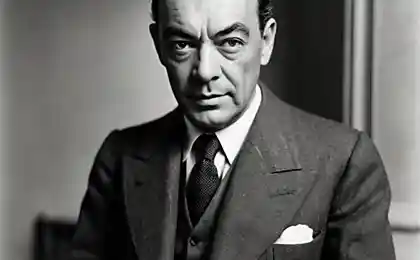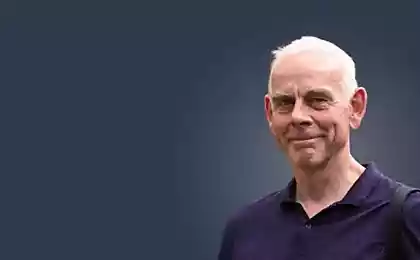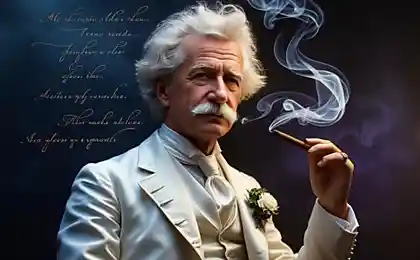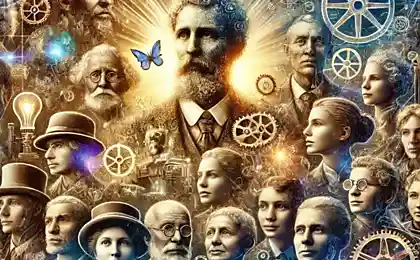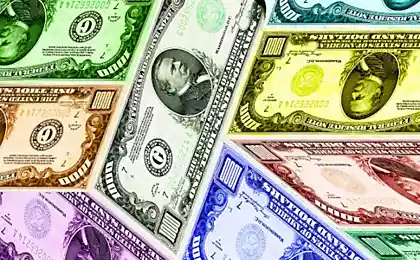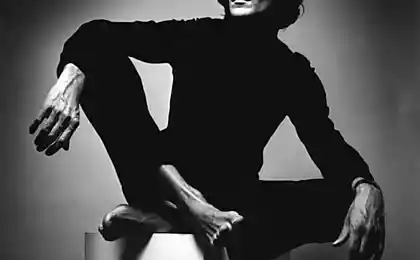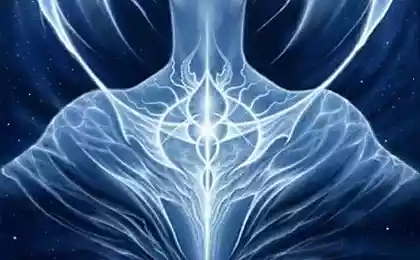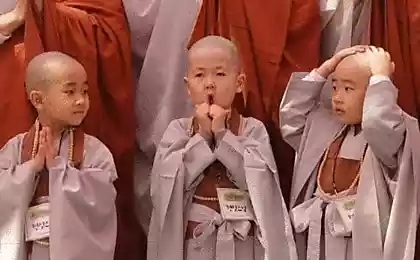243
What books to read to understand this world. List from Zubarev

The journey into the world of knowledge begins with the right books.
In the age of information noise, good books become beacons of deep understanding of the world. Correctly selected literature can change the view of reality, expand the horizons of consciousness and offer unexpected solutions to eternal questions. Zubarev’s list of books is a guide to works that touch on fundamental aspects of human existence: from the search for meaning to the neurophysiology of happiness, from the psychology of the male principle to the effective management of one’s time.
The philosophy of survival and finding meaning
1. Victor Frankl. Tell Life YES
Evidence of the survival of the human spirit in inhuman conditions. Viktor Frankl, an Austrian psychiatrist who went through concentration camps during the Holocaust, conducts a deep psychological analysis of how a person is able to maintain inner freedom even when they are deprived of everything external.
Even in the most difficult circumstances, a person can find meaning that will help him survive. Frankl proved that those with a purpose worth living for were more likely to survive in inhuman conditions.
“There is space between stimulus and response. In this space, we have the power to choose our response. Our reaction is our growth and our freedom. – Victor Frankl
2. Henry Marsh. Do no harm.
The candid memoir of a leading neurosurgeon plunges into a world where every movement of a scalpel can mean the difference between life and death. Marsh talks with amazing honesty about his successes and failures, about doubts and struggles with his own ego, about difficult ethical decisions.
The book teaches you to understand the complexity of the medical profession and face your own mortality. Through the lens of his experience, Marsh shows what it means to be truly human in a profession where technical skills are intertwined with moral dilemmas.
Why do philosophical books change us the most?
Philosophical texts touch upon the basic questions of existence, forcing the revision of fundamental ideas about reality. When we read such books, there is not just intellectual reflection, but a profound transformation of consciousness.
Studies of cognitive processes show that philosophical texts activate areas of the brain associated with introspection and reassessment of values, triggering the process of integrating new ideas about the world into a personal coordinate system.
Keys to Internal Transformation
3. Eckhart Tolle. Voice of Silence
Eckhart Tolle offers a radical new perspective on awareness and presentness. This is a practical guide to getting out of compulsive thinking, which the author calls the “disease of humanity”.
The value of the book is that it shows the way to inner peace through awareness of the present moment. Tolle explains how obsessive thinking about the past or future creates psychological suffering, and suggests practices for developing "presence."

Internal transformation begins with awareness and acceptance of the present moment.
4. Paul Wenceslavic. How to become unhappy without help
The paradoxical name hides a deep psychological analysis of how we create our own suffering. Wenceslavic, with subtle irony, reveals the common cognitive traps that people fall into in the pursuit of happiness.
The author demonstrates how attempts to solve a problem often become part of the problem itself, how striving for perfection turns into a source of chronic discontent. The book becomes a mirror in which the reader can see his own destructive thought patterns.
“One of the surest ways to make a problem worse is to actively try to solve it with inappropriate means.”
5. Karen Pryor. Don't growl at the dog.
This book goes far beyond animal training and opens up the possibility of applying the principles of positive reinforcement to human relationships. Karen Pryor demonstrates the universality of the laws of learning and behavior change.
The reader will learn how positive reinforcement of desired behaviors (instead of punishing unwanted behaviors) can effectively engage with children, partners, colleagues, and oneself.
Practical recommendations for reading transformative books:
- Read slowly, with pauses for reflection
- Keep a reading diary by writing down key ideas
- Put what you read into practice
- Discuss ideas with like-minded people
- Return to the books at intervals of time.
The Science of Happiness and Personal Growth
6. Yonge Mingyor Rinpoche. Buddha, Brain, Neurophysiology of Happiness
An amazing synthesis of ancient Buddhist wisdom and modern neuroscience. Yonge Mingjor Rinpoche shows how millennial meditation practices find scientific grounding in modern brain research.
The book explains how mindfulness meditation physically changes the structure of the brain, enhancing areas responsible for attention, emotional regulation and empathy. The author offers practical exercises and explains their impact on the neural level.
Studies show that regular meditation after 8 weeks leads to measurable changes in brain structure, enhancing areas associated with concentration and emotional resilience.
7. Eugene Monique. Fallos. Sacred male image
A profound Jungian study of male psychology through the prism of archetypal images and symbols. Eugene Monique explores how the perception of masculinity has transformed across cultures and what identity crisis it causes in modern men.
The book helps to understand the underlying sources of male fears, aspirations, and behavioral patterns, going beyond superficial notions of gender roles to understanding the universal archetypal foundations of the psyche.

Modern science confirms link between mindfulness practices and structural changes in the brain
8. Hal Elrod. Morning magic. How the First Hour of the Day Determines Your Success
A practical guide to transforming life through creating an effective morning ritual. Hal Elrod, who overcame the consequences of a severe car accident, shares a technique that helped him not only recover, but also achieve outstanding results.
The author offers a set of six practices (meditation, affirmations, visualization, physical exercises, reading, journaling), which, performed in the first hour after waking up, set the tone for the whole day and gradually change life for the better.
“How you start your day largely determines the quality of your consciousness and your productivity throughout the day.”
9. Arthur Freeman, Rose Dewoulf. 10 stupidest mistakes people make
A practical guide to cognitive therapy for everyday life. The authors systematize the most common cognitive distortions: catastrophism, black and white thinking, personalization, emotional reasoning and others.
The value of the book is that it helps you recognize these patterns in your own thinking and offers specific strategies to overcome them. The authors show how our thoughts shape emotions and behavior, and how changing cognitive patterns can improve quality of life.
Why are these books changing the worldview?
The books presented in Zubarev’s list combine the ability to cause cognitive dissonance – a state of psychological discomfort when confronted with information that contradicts existing beliefs. This mechanism underlies a profound transformation of the worldview.
Each of these books offers new optics for the perception of reality, creating a multidisciplinary framework for the formation of a holistic view of the world, integrating different knowledge systems.
Literature as a window into other worlds
10. Arkady and Boris Strugatsky. Monday starts on Saturday
This fantastic story goes far beyond entertainment literature. Under the mask of a humorous fairy tale lies a deep philosophical reflection on the meaning of scientific research, the ethics of knowledge and the clash of the rational and irrational in culture.
NIICHAVO becomes a metaphor for the ideal scientific community, where work becomes creativity, and the search for truth becomes the main value of life. Through the adventures of programmer Alexander Privalov, the authors explore the boundaries between science and myth, rational and magical thinking.
“Happiness lies in the continual knowledge of the unknown, and the meaning of life in the same. The rest is empty. These words of Strugatsky became the motto for many generations of scientists and researchers.
How to get the most out of Zubarev’s book list:
- Choose one book that resonates most with your current questions.
- Create a Reading Group to Discuss What You Read
- Create interdisciplinary links between books
- Practice active reading – ask questions about the text
- Revisit key ideas regularly
In search of a holistic worldview
The list of books from Zubarev is not just a set of disparate works, but a carefully built coordinate system for the formation of a holistic worldview. Each book reveals a specific aspect of reality, from the existential questions of life and death to the neurophysiological foundations of happiness, from deep psychology to practical time management.
The special value of this collection is its interdisciplinarity - it combines scientific and spiritual approaches to understanding man and the world, psychological and philosophical perspectives, Western and Eastern traditions of thought.
The journey through these books is not a linear process of accumulating information, but a spiral movement toward a deeper understanding of oneself and the world. With each book we read and read, our understanding becomes more subtle, nuanced and holistic.
The books on Zubarev’s list do not provide ready-made answers, but they do ask the right questions, broaden the horizons of thinking and open up new perspectives for independent exploration of reality.
Glossary
Existentialism
A philosophical direction that explores the problems of human existence, freedom of choice, meaning of life and personal responsibility. The key idea is that man defines himself through his actions and choices.
Cognitive dissonance
A state of psychological discomfort that occurs when confronted with information that contradicts existing beliefs. The desire to reduce this tension can lead to both denial of new information and change of beliefs.
Archetype
In the analytical psychology of K.G. Jung, universal innate mental structures that make up the content of the collective unconscious and manifest themselves in dreams, myths, fairy tales and other cultural phenomena.
Mindfulness (mindfulness)
The psychological practice of directing attention to the present moment with and without evaluating the sensations, thoughts and emotions that arise. Modern research confirms its effectiveness in improving mental health.
Cognitive distortions
Systematic errors in thinking that affect decision-making and judgment. Includes such phenomena as confirmation bias, halo effect, illusion of control and many others.
7 Signs You’re Overflowing With Negativity and It’s Time to Get Rid of It
8 Things That Make You Who You Are



